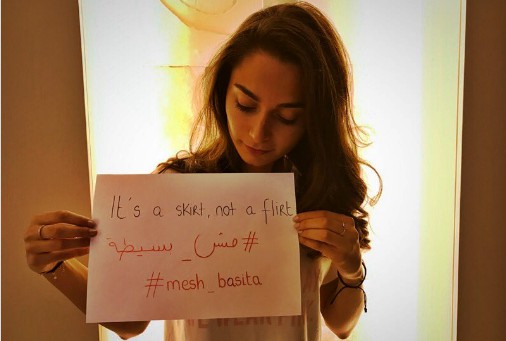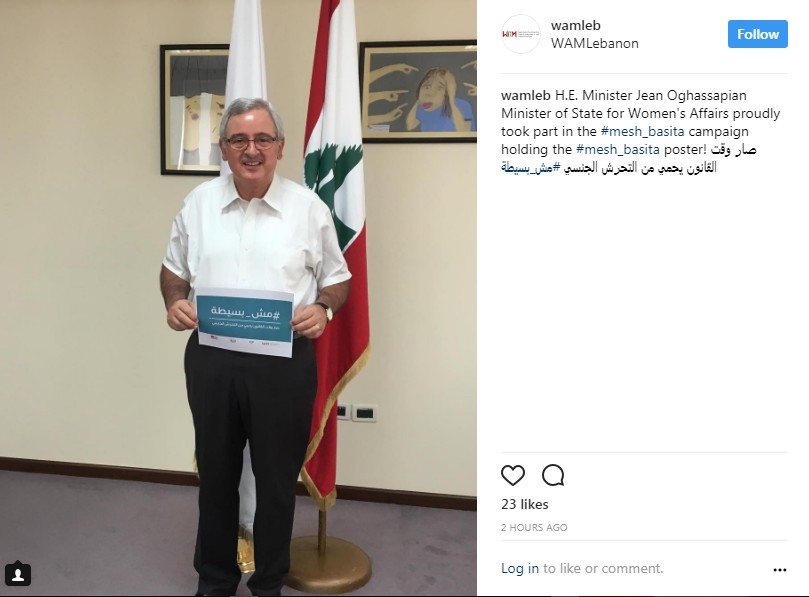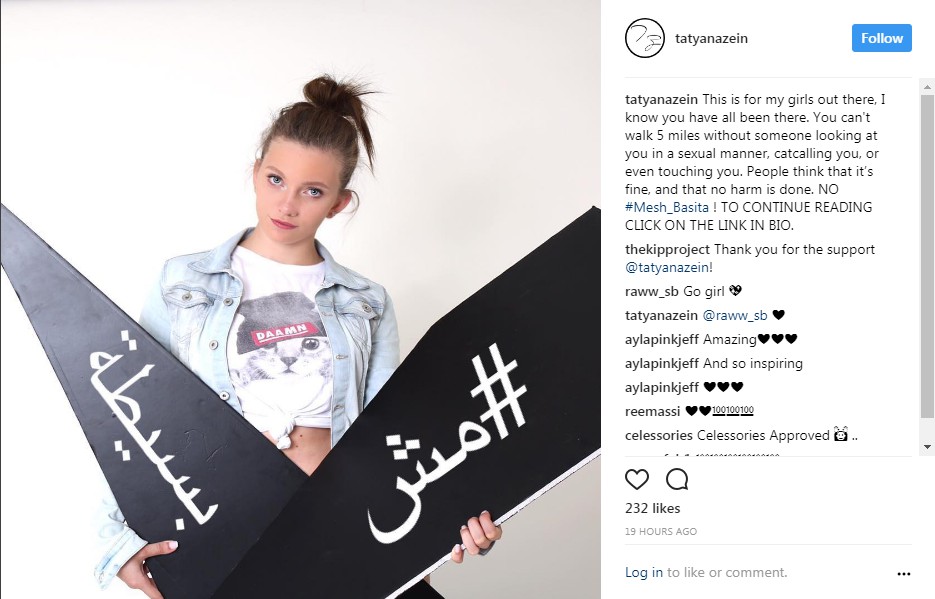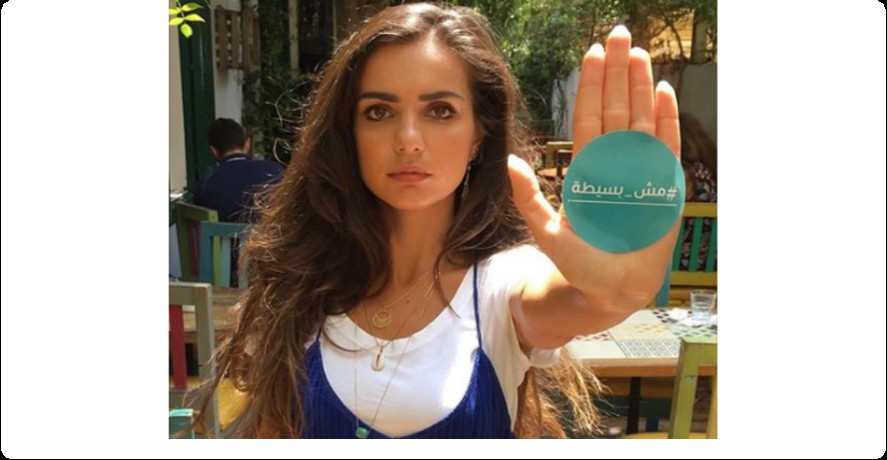Sexual harassment is not just a problem faced by Egyptian women, women all over the world are plagued by this social cancer. In Lebanon, women do not have any legal protection from harassment making it very difficult to hold harassers to account. But the incredible women behind the Knowledge Is Power (KIP) project have had enough! Their new campaign #Mesh_Basita, (it is not okay), is pushing for change, so we spoke to KIP Project Coordinator, Zeina Mhaidly and Associate Dean of Programs and KIP Project Director, Dr. Charlotte Karam to find out more about their valiant battle against harassment.
1) What is the KIP project all about?
KIP is a project funded by the US State Department, based in the Olayan School of Business at AUB. It began from a conversation with the previous US Ambassador to Lebanon about what action the AUB Business School wanted in the area of gender. We wanted to build wide networks across Lebanese civil society, building bridges between academics who are researching gender topics and activists who are doing amazing work in the region. We also wanted to mobilize across different faculties; nursing, business, political science, to find one voice for empowerment across the disciplines.
2) How did the focus on sexual harassment come about?
We held a series of round-tables bringing together the multi-disciplinary stakeholders; so the CEO, the public-sector worker, the medical doctor, the 17 year old activist, all at one table. It was eye-opening. We were asking what questions need to be asked in civil society to really make an impact in Lebanon. What we noticed across all of the round-tables was that sexual harassment and discrimination really stood out. So we decided to begin a series of initiatives that would raise discussion and debate around sexual harassment.
3) Could you tell us about the nature of sexual harassment in Lebanon?
It comes in various forms. Verbal harassment is definitely the more prominent and prevalent, but there are very specific examples of physical harassment. Inspired by the Egyptian ‘Harassmap’, there was an initiative started here called ‘HarassTracker’, which gives very concrete examples of physical harassment. It is hard to gauge the exact scale because there is no official legal mechanism for reporting.

4) What exactly is ‘Mesh Basita’?
It is a campaign aiming to show the need for legal change in regards to sexual harassment as well as opening a discussion as to what constitutes harassment. We used a video to show the various forms of sexual harassment that occur in a woman’s life, from childhood with her friends and teachers telling her repeatedly as she is growing up, ‘basita’ (it’s not a big deal). It shows how this message can breed confusion so that when harassment gets violent, she doesn’t know how to react. We are countering ‘basita’ by saying ‘mesh basita’, (it is not okay).
5) Why is there such difficulty getting legislative change?
There isn’t a direct rejection of legislative change, but because this is a failing state, and the government hasn’t turned its attention to this kind of human rights legislation, it has been put on the backburner. It takes years of activism and direct targeting to get them to bring it to voting. In addition, there is also no real agreement on what sexual harassment is.
6) The campaign aims to get the general public involved as opposed to focusing purely on lobbying, why do you think this is so important?
We have had a lot of discussions with representatives from various ministries, the Ministry for Education, the Ministry of Labor and so on. The Mesh Basita campaign is also partnered with the Office of the Minister of State for Women’s Affairs. So we do try to work with government agencies and lobby that way, but it’s not enough. Social media was really able to bring attention to it, saying ‘this is happening and it’s not going to go away, we can’t wait for everything else in the country to be fixed before we deal with this’.

We have also taken a real focus on HR policy. In a state where there are no legal protections we need to think about the immediacy of protection. Organizational codes of conduct are a mechanism that we can influence. If within a code of conduct it states that these forms of sexual harassment are unacceptable, managers and employees within that organization can be held to account if they break it. We held a training day with small and medium-sized enterprises to redraft codes of conduct so they stand up in a court of law. So we are trying to find different ways of advocating Mesh Basita.
7) What has the response to this campaign been from the public?
We have got a lot of response from the public, particularly on social media around the issue of sexual harassment, with people engaging and arguing about the issues. By showing all the different forms of harassment we have made people question and reflect on what sexual harassment is.

8) Do you think it is important to ensure that you have cross-gender support?
Yes absolutely. We want to raise issues of masculinity in harassment.
9) Once you have laws in place, things won’t magically change, what has to happen to change the culture of sexual harassment?
There needs to be more awareness of what sexual harassment is. The idea of sexualizing power and using sex as a tool of power is something we need to start thinking about it, because sexual harassment is part of a bigger issue.
Credits: The KIP Project on Gender and Sexuality Facebook
Find out more about the KIP Project and #Mesh_Basita by checking out their website and Facebook.

